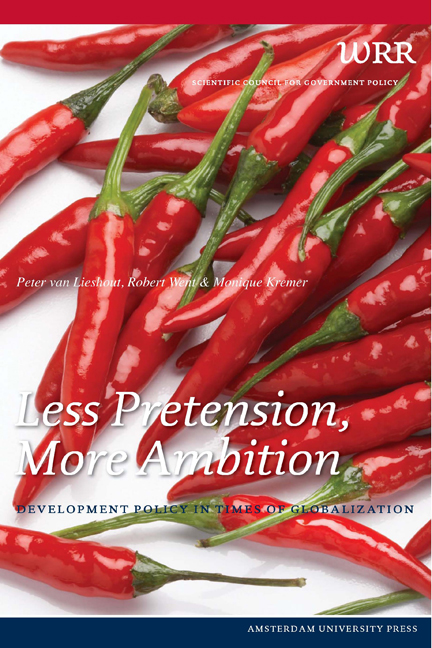Book contents
7 - Being more Specific: Professionalizing Aid
Published online by Cambridge University Press: 14 January 2021
Summary
What is required to make a serious contribution to development? As we have seen, there is no Big Answer to that question. Societies cannot be ‘fixed’. Development aid should aim to increase self-sufficiency, and be tailored to the specific situation and problems in the country concerned. Anyone who takes this as a serious starting point will not act on the basis of yet another grand, universal theory of development, but on a heterogeneous, better substantiated and targeted collection of local policy practices.
APPROPRIATE AID MODALITIES
Asking how to shape development is to ask not only what, but also how. The debate on ‘what’ is many times more intensive than the question of ‘how’. Aid presupposes a thorough reflection on which instruments to deploy, but that is a surprisingly neglected issue. There has been little systematic reflection on how aid can best be provided. To be more precise, there is a whole body of literature on specific intervention variants – for example, the various forms of microcredit have been evaluated extensively – but the question of how this aid relates to the ‘political economy’ of a country is almost invariably ignored. At micro level there is a wide range of insights into the exact design of aid projects, but the issue of whether aid can better be provided through NGOs or local government is much less systematically examined. Choice of instruments is often a matter of preference, with some people believing that governments are the best channel, and others placing their trust in multilateral organizations, NGOs or the private sector.
This neglect is partly based on the implicit assumption that all aid is worthwhile. As long as it is aimed at reducing poverty, every person who is alleviated from poverty is a positive result, no matter who provides the aid. When the objective shifts to increasing the self-sufficiency of countries and peoples, it is necessary to ask what kind of aid is best suited to achieving that. In addition to increasing selfsufficiency, it is also important to address ways of avoiding negative side effects of aid, such as the unproductive perpetuation of neopatrimonial structures. The existence of such structures is a reality in many developing countries, and it is important to determine how aid relates to them.
- Type
- Chapter
- Information
- Less Pretension, More AmbitionDevelopment Policy in Times of Globalization, pp. 195 - 232Publisher: Amsterdam University PressPrint publication year: 2010



